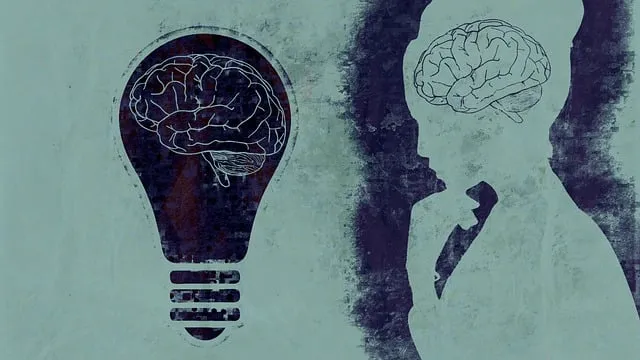The Littleton Kaiser Permanente behavioral health center prioritizes patient safety through comprehensive risk assessment and harm minimization strategies. They meticulously evaluate internal and external risks, historical data, individual patient needs, and environmental factors to proactively identify potential harms. By integrating conflict resolution techniques, mental health education, compassion cultivation, and self-care practices, the center fosters a supportive environment that enhances mental wellness and treatment effectiveness. Regular monitoring, data analysis, and tailored interventions ensure early risk identification and informed treatment adjustments, ultimately improving patient outcomes and quality of life.
At the Littleton Kaiser Permanente Behavioral Health Center, risk assessment and harm minimization planning are cornerstone strategies for ensuring patient safety and well-being. This comprehensive guide delves into the critical processes of understanding risk assessment, identifying and evaluating potential harms, developing robust minimization plans, implementing effective monitoring strategies, and fostering continuous improvement through regular audits. By exploring these essential components, healthcare professionals can create a secure environment tailored to the unique needs of their patients at Littleton Kaiser Permanente Behavioral Health Center.
- Understanding Risk Assessment at Littleton Kaiser Permanente Behavioral Health Center
- Identifying and Evaluating Potential Harms
- Developing a Comprehensive Minimization Plan
- Implementing Strategies for Effective Monitoring
- Continuous Improvement and Regular Audits
Understanding Risk Assessment at Littleton Kaiser Permanente Behavioral Health Center

At Littleton Kaiser Permanente Behavioral Health Center, risk assessment is a foundational process that guides harm minimization planning. It involves meticulously evaluating potential risks associated with various activities and environments within the center, focusing on both internal and external factors. This comprehensive approach ensures the safety and well-being of patients, staff, and visitors alike.
The center prioritizes proactive measures by identifying risk factors early through detailed assessments. This includes analyzing historical data, understanding individual patient needs, and considering environmental influences. By integrating conflict resolution techniques and mental health education programs design into their risk assessment framework, Littleton Kaiser Permanente Behavioral Health Center fosters a supportive environment that promotes mental wellness. This holistic strategy not only minimizes potential harms but also enhances the overall effectiveness of care provided.
Identifying and Evaluating Potential Harms

At the Littleton Kaiser Permanente behavioral health center, identifying and evaluating potential harms is a meticulous process that forms the foundation for comprehensive risk assessment. This involves a thorough scrutiny of various factors within the healthcare environment, including patient interactions, treatment modalities, and systemic issues. By pinpointing possible risks, such as medication errors, therapeutic missteps, or emotional distress, the center can proactively implement harm minimization strategies.
The evaluation process incorporates evidence-based methods to gauge the likelihood and magnitude of potential harms. This includes analyzing past incidents, patient feedback mechanisms, and expert opinions. Moreover, it leverages the development of coping skills, conflict resolution techniques, and mental wellness coaching programs to equip individuals with tools to navigate challenges. These proactive measures not only safeguard patients but also foster a more resilient and supportive healthcare ecosystem, particularly within the context of behavioral health services.
Developing a Comprehensive Minimization Plan

At the Littleton Kaiser Permanente behavioral health center, developing a comprehensive harm minimization plan is paramount to ensuring patient safety and effective treatment outcomes. This involves a multifaceted approach that integrates Risk Management Planning for Mental Health Professionals with Self-Care Practices and Communication Strategies. A robust minimization plan starts with identifying potential risks within the clinical setting, including those associated with specific therapies or interactions between patients and healthcare providers.
Once identified, these risks are meticulously assessed based on their likelihood and potential impact. This assessment guides the implementation of evidence-based strategies tailored to mitigate risks effectively. Effective communication becomes a cornerstone in this process, fostering an open dialogue between mental health professionals and patients. By involving patients in risk assessment and planning, practitioners empower them to actively participate in their care, enhancing self-care practices and overall treatment adherence.
Implementing Strategies for Effective Monitoring

Implementing effective monitoring strategies is a critical step in risk assessment and harm minimization planning, especially within healthcare settings like the Littleton Kaiser Permanente behavioral health center. This involves establishing robust systems to track patient progress, identify potential risks early on, and ensure interventions are tailored to individual needs. By integrating Compassion Cultivation Practices, which foster empathy and self-compassion, into monitoring routines, healthcare providers can enhance patient engagement and support. Such practices not only promote better coping mechanisms but also contribute to Anxiety Relief, a key aspect of overall well-being.
Moreover, leveraging Mind Over Matter Principles allows for a holistic approach in monitoring. This involves encouraging patients to challenge negative thoughts and beliefs, fostering resilience and emotional regulation. Through regular check-ins and data analysis, healthcare professionals can identify patterns, adjust treatment plans accordingly, and ultimately minimize potential harms. Effective monitoring not only ensures patient safety but also facilitates positive outcomes and improved quality of life.
Continuous Improvement and Regular Audits

At the Littleton Kaiser Permanente behavioral health center, continuous improvement and regular audits are integral components of their risk assessment and harm minimization strategy. By conducting thorough reviews of existing protocols and procedures, the center aims to identify areas for enhancement, ensuring that best practices are consistently applied. This proactive approach involves regularly evaluating staff training programs, such as the implementation of a Community Outreach Program and Social Skills Training, to foster a comprehensive understanding of mental health issues within diverse communities.
Through these audits, the Littleton Kaiser Permanente behavioral health center can stay abreast of emerging trends in risk assessment for mental health professionals, adapt to evolving societal needs, and ultimately minimize potential harms. This commitment to continuous improvement reflects the center’s dedication to providing exceptional care while prioritizing patient safety and well-being.
Risk assessment and harm minimization planning at the Littleton Kaiser Permanente Behavioral Health Center are integral components of providing safe, effective care. By understanding risk factors, identifying potential harms, and developing comprehensive minimization strategies, the center ensures a proactive approach to patient safety. Effective monitoring and continuous improvement through regular audits further solidify the center’s commitment to delivering high-quality behavioral health services. This structured framework not only protects patients but also enhances the overall effectiveness of care at Littleton Kaiser Permanente.






